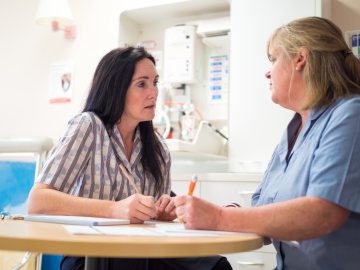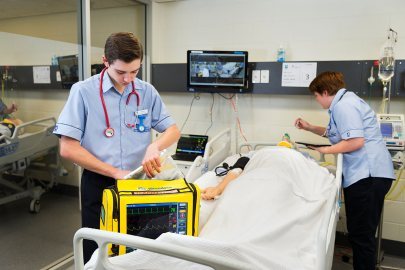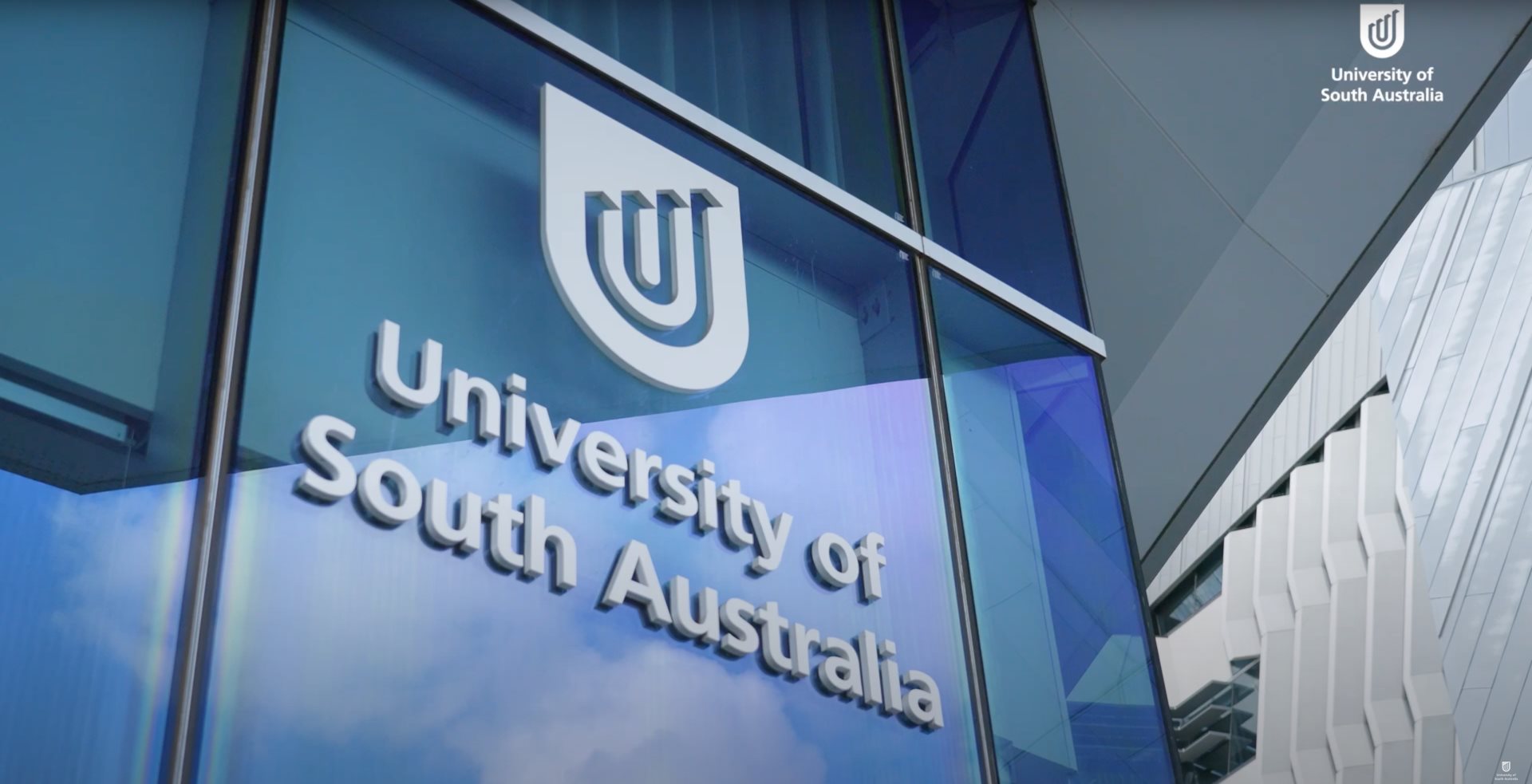Graduate Certificate in Nursing (SA Health Clinical Specialisation Program) (Critical Care Nursing)
Degree Level Postgraduate
Year 2025
You're considered an Australian student if you are any of the following:
Degree Level Postgraduate
Year 2025
Program Code
ICNS
Study as
Part-time only
Mode
Online
Fees
$AU 3,240 per 0.5 EFTSL for students enrolled in 2025
Applicants are required to:
This offering is only available to Registered Nurses or Midwives employed by SA Health. International applicants are welcome to apply, provided they do not require a student visa.
SA Health pays the cost of the first course for endorsed students. Fees may apply for an additional course to complete the Graduate Certificate, see above.
12025 QS Subject Rankings. 22018 Excellence in Research for Australia (ERA). 3ComparED (QILT) Student Experience Survey 2021-22, Nursing – Teaching Quality Indicator (Postgraduate). SA public universities.

This degree is exclusively for SA Health-employed Registered Nurses who have been endorsed by their employer to study.
This graduate certificate is delivered by UniSA as part of the Clinical Specialisation Program, an SA Health sponsored opportunity for Registered Nurses to undertake an accelerated pathway into further clinical specialisations.
UniSA’s Graduate Certificate in Nursing (Critical Care Nursing) will develop your knowledge and application of the professional, socioethical and legal aspects of care.
Students can apply for the Clinical Specialisation Program scholarship and have their first course fully funded by SA Health.
UniSA’s Graduate Certificate in Nursing (Critical Care Nursing) will develop the skills of registered nurses in critical care, where the nurse will be able to independently provide safe nursing care for a variety of critically ill people, using a person and family-focused approach.
As a Registered Nurse, you’ll grow your specialist, evidence-based skills in nursing critically ill patients. Further your care in intensive care, emergency care or coronary care. Students will be required to be employed in intensive care, emergency1 or coronary/cardiac units to complete the critical care program.
Students who want to tailor their studies to their career goals may be interested in our Graduate Certificate in Nursing or Graduate Certificate in Nursing (SA Health Clinical Specialisation Program).
1 Students working in Country Health seeking to complete the critical care program are encouraged to discuss this with the course coordinator/program director. Registered Nurses working in country health who are expected to manage emergency situations, Code Blues or triage critically ill patients will be directed to complete the emergency nursing stream.
 You’ll cover topics such as:
You’ll cover topics such as:
During your study you will cover:
critical care standards
pathophysiology of different shocked states
advanced respiratory care
advanced cardiac care
advanced neurological care
advanced renal management
trauma care and management
end of life care

UniSA's flexible suite of postgraduate nursing qualifications are designed to recognise your prior learning and advance your career prospects.
This online, part-time qualification has been designed to suit working professionals, with interactive online course materials and a 24/7 learning environment to enable you to organise your study to suit your lifestyle.
The curriculum of this graduate certificate is informed by UniSA's well above world-class research in nursing.1 You'll be taught by specialist postgraduate teaching staff and experienced clinicians, assuring you the very best in academic resources, learning facilities and support.
Upon successful completion of a postgraduate qualification at UniSA, you may then be eligible to gain credit into higher level qualifications and reduce the overall duration of your study.
12018 Excellence in Research for Australia (ERA).
Hear from Dr. Allison Roderick, UniSA's Program Director of Postgraduate Nursing and Midwifery Programs, on how postgraduate study can take your career as an Registered Nurse even further.

Have any questions? We're here to help! Contact Adelaide University's Future Student Enquiries Team.
Applications are currently closed.
Applying to study with us:
Every year, over 2,500 UniSA students are supported in their studies through scholarships and grants worth millions of dollars. Check out the scholarships below. One of them may be perfect for you. Visit our scholarships page for more.
Available for students who are interested in undertaking specified activities with the aim of enhancing the overall student experience at UniSA.
Travel Grants are available to participate in our Study Overseas Programs. UniSA has agreement with over 80 institutions globally.
Our campuses have fantastic facilities including modern lecture theatres, libraries, workshops, laboratories, tech zones, and spaces that simulate real work environments. You’ll also find student gyms and campus sport activities to keep you active. We also offer flexible study options, with online resources available for accessing lecture recordings, virtual classrooms, library resources and learning support.
Adelaide also has a variety of accommodation options to suit different requirements and budgets. Options include dedicated student accommodation and private rentals. See our long-term accommodation pages, or explore our student accommodation by Scape on Bank Street in Adelaide’s lively cultural precinct, an ideal location for students. It is within easy reach of UniSA’s city and metropolitan campuses, Rundle Mall shopping, the Central Market, Chinatown, and the West End’s vibrant nightlife. It is also across the road from the Adelaide train station, and on bus and tram routes.
You'll have access to our unique clinician led, authentic simulated hospital and health service on campus, as well as a range of on-campus lecture theatres, learning and social spaces.

The way you apply for UniSA will depend on the undergraduate or postgraduate coursework degree you're interested in studying.
The majority of applications are made via the South Australian Tertiary Admissions Centre (SATAC). Check out more information on the SATAC website and follow the appropriate process for your degree of interest.
There are a small number of degrees that you need to apply for through direct application processes. The process you need to follow will be listed on the 'How to Apply' section of the degree homepage, but you'll also be taken to where you need to go if you hit the 'apply' button.
If you are interested in studying one of our 100% online degrees you'll need to apply directly to UniSA Online.
You can find more information about the application processes for UniSA on our How to Apply webpage.
If you're more interested in applying for a postgraduate degree by research, check out and follow the information in our step by step guide to applying.
Applications for all degrees will close ahead of study commencing, but the timelines may vary for undergraduate and postgraduate degrees.
The deadline to apply to study a degree at UniSA for semester one (commencing late February) and be guaranteed equal consideration is generally in very late November or early December. While you may be able to apply after this date, you are not guaranteed to be considered equally with other applicants and your application may not be assessed in time for the main round of offers. More competitive degrees may not make any offers after the main offer round. Find more information on the Key Dates section of the SATAC website, but you can also call the Future Student Enquiries team for more information on 08 8302 376.
Many postgraduate by coursework degrees do not have set closing dates. The exceptions are highly competitive degrees, so it is best to check – either on the degree homepage on the SATAC website or by checking with our Future Student Enquiries team.
As most postgraduate applications are assessed as they are submitted and offers are continuous, there are no set closing dates for applications. Degrees can be filled and closed with little notice so it is best to apply as soon as possible to avoid missing out on a place. For more information, please contact our Future Student Enquires team on (08) 8302 2376 or submit an enquiry.
You may be eligible for credit or advanced standing for your chosen UniSA degree based on your previous studies, if they are in a related area and completed within a certain timeframe. Receiving credit or RPL will reduce the number of courses you undertake within the degree, and may also reduce the overall duration of your degree. You can read more about our pre-existing credit agreements through our online Credit Assessor. If you have related industry experience, you may also be eligible to receive recognised prior learning (RPL) for this experience. Credit and RPL is assessed by the Program Director once you've received an offer, and you apply through UniSA's current student experts, Campus Central.
Future Student Enquiries welcomes the opportunity to meet with you to discuss your study options at UniSA. We can discuss degree information, entry requirements and pathways, applications, general career outcomes and student life, so you have the information to make the best study decision for your future. Head to our Book an Appointment webpage to find a date and time to speak with us, and take your next steps on journey to university study.